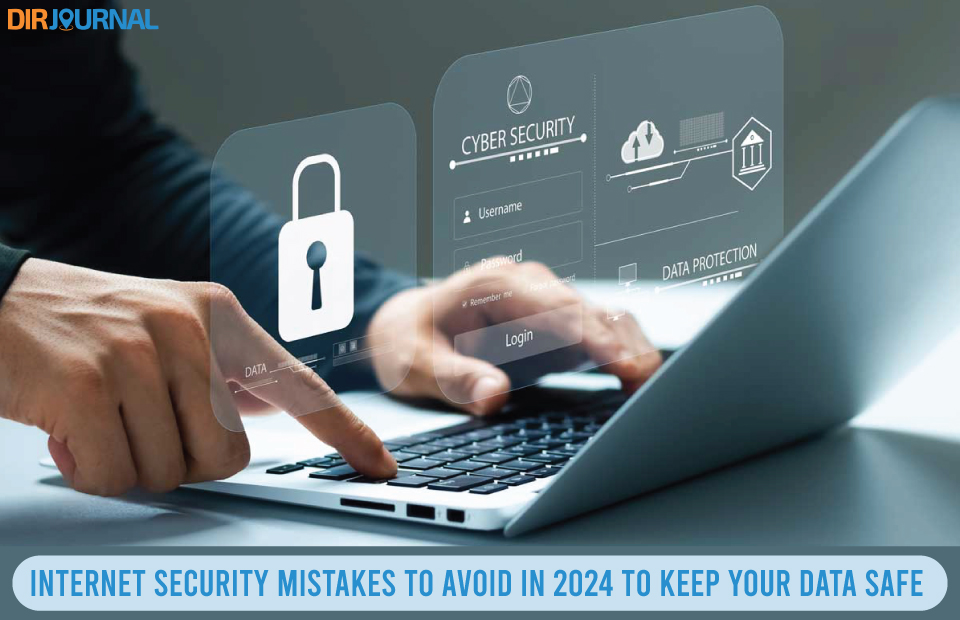Going into 2024, it’s more important than ever to avoid internet security mistakes if you want to keep your data and your identity safe.
Since the pandemic and the widespread adoption of remote or hybrid work, cyber crime has been booming. Experts estimate that this year alone, 33 billion accounts will be hacked – a number that’s expected to increase in 2024.
So what can you do to protect yourself?
Here are five common mistakes hackers love to exploit, and how to avoid them.
Failing to Use 2FA
First off, one of the most common internet security mistakes out there is failing to use two-factor authentication (2FA).
Yes, it can be cumbersome to confirm your login on a second device, like a phone or tablet. However, while it may take you a minute longer to get into your accounts, 2FA is one of the best ways to frustrate hackers.
Switching on 2FA is especially crucial for accounts on platforms such as Google and Facebook, which often act as gateways to other platforms. (“Sign up using Google” anyone?)
Relying On Biometric Authentication Only
Next up, another frequent cybersecurity mistake is relying solely on biometric authentication.
Unlocking your devices using fingerprints, facial recognition, or voiceprints is handy. However, in the era of AI-generated deepfakes it’s no longer safe. Experts point out that facial recognition and voiceprints in particular are now a breeze to beat for hackers.
In the long run, providers of devices using biometric authentication will have to add extra layers of security, such as a blood-flow checker. For the moment, the easiest way to protect yourself is to have a backup, such as a security code or 2FA.
Being Lax on Passwords
Yes, it’s definitely something that you’ve heard before. Setting secure, complex, and unique passwords for all your accounts is essential. Yet not creating proper passwords and not auditing them regularly remains one of the most common internet security mistakes.
80% of breaches are caused by low password security. Hardly surprising, considering that 65% of people recycle passwords across platforms, 69% share them with colleagues, and 59% still use their name or birthday.
To protect yourself, you need to step up your password game. Get a password manager if you don’t have one already. Audit all the passwords you currently use, and change those that are weak or used across multiple platforms.
Lagging Behind on Phishing Trends
Another one of the most common internet security mistakes to avoid in 2024 is not staying up to date with the latest scams and phishing trends.
By now, pretty much any moderately proficient internet user will recognize the classic Nigerian Prince scam in their inbox. But if you get a message on your work Slack channel asking you to check out a link and give feedback, will you really think twice about clicking it?
You might, if you knew that team collaboration platforms are ever more frequent targets for hackers. For that, though, you need to stay up with cybersecurity trends.
Daunting as it can sound, keeping up with common scams and phishing attempts is easier than it sounds. The best way to go about it is to follow cybersecurity publications on social media, or to sign up for their periodical newsletters.
Skipping On Identity Theft Protection
Finally, one of the biggest internet security mistakes is to skip on getting identity theft protection.
According to Intelligent Safety, a recent book published by cybersecurity expert Hari Ravichandran, 1 in 10 people become victims of identity theft every year.
Recovering your identity can take years – and costs thousands of dollars. Especially because many people don’t realize they have been hacked for months, until loan sharks show up at their door, or they get threatening letters from social security providers.
The best way to avoid this is to get identity theft protection. Typically, this comes with a monitoring service to let you know if your identity has been commandeered, and a support system and financial compensation to help you cope if it does happen.
Conclusion
Safeguarding your data and your identity online is a harder challenge than ever going into 2024.
By taking steps to avoid the common internet security mistakes above, you’ll be able to protect yourself, and leave hackers frustrated.


